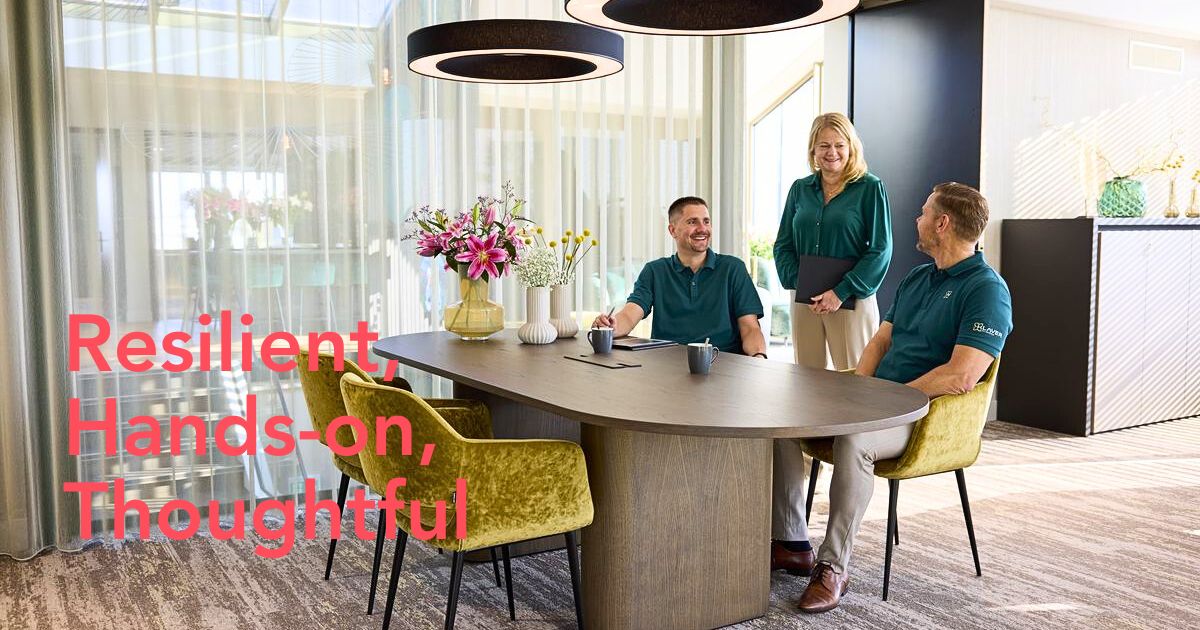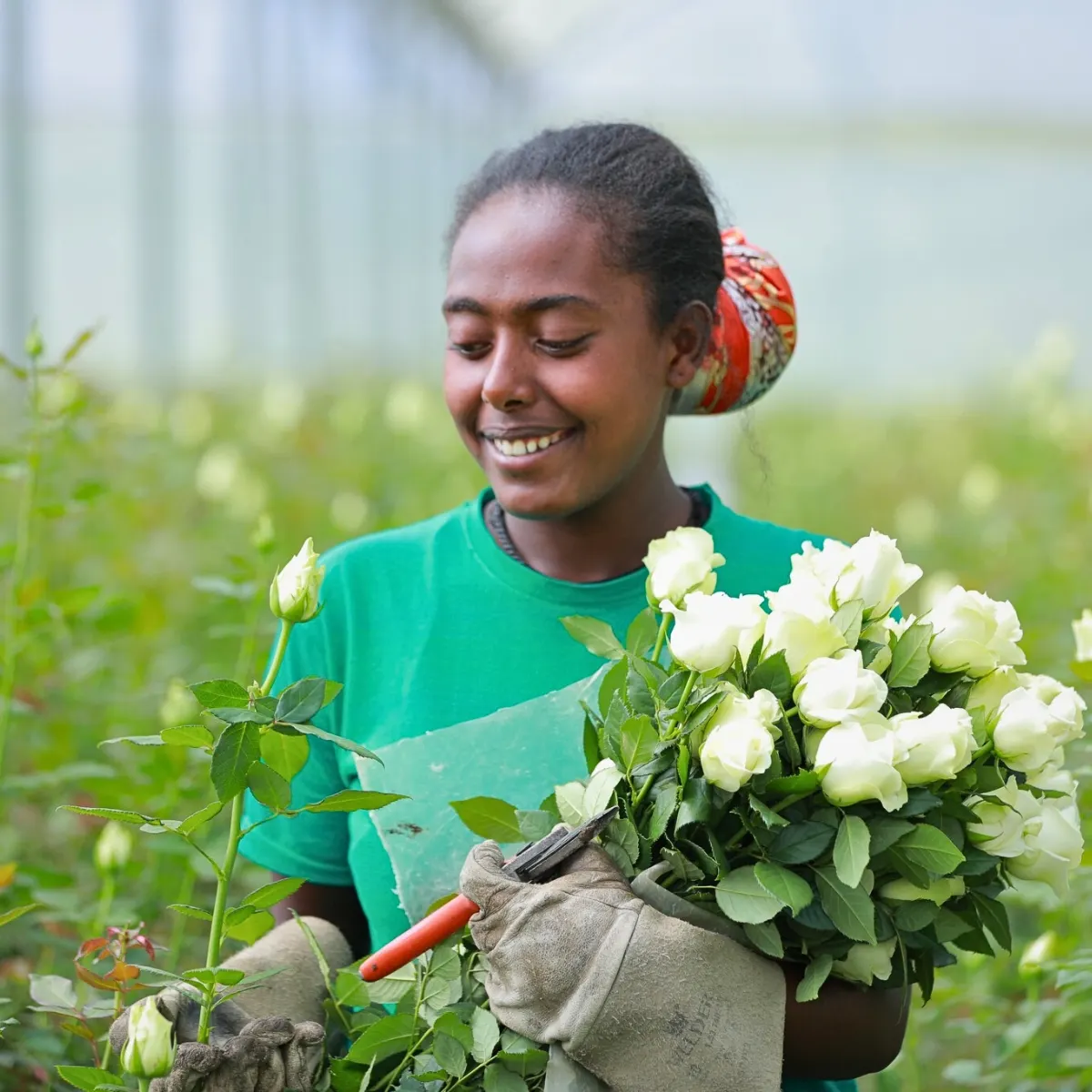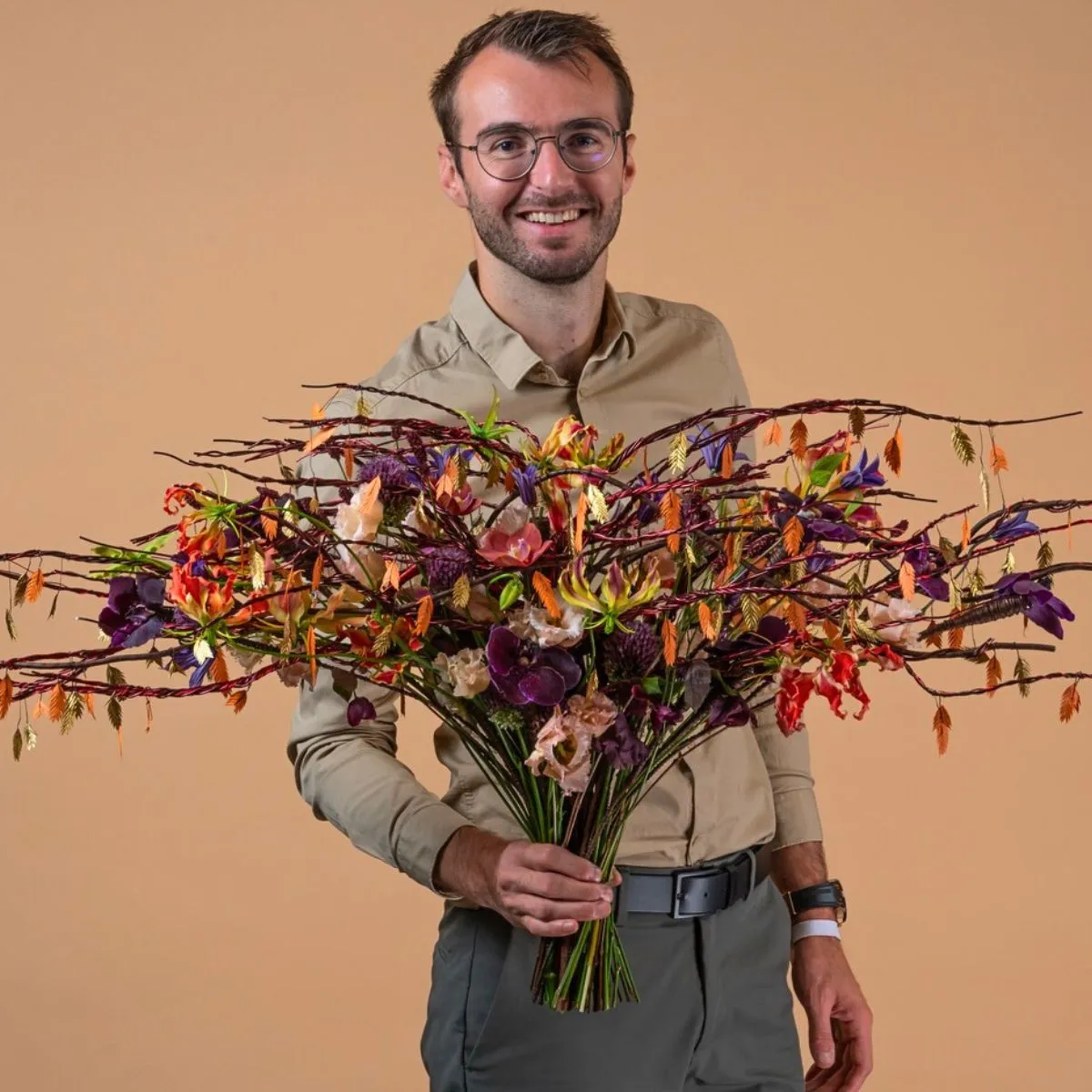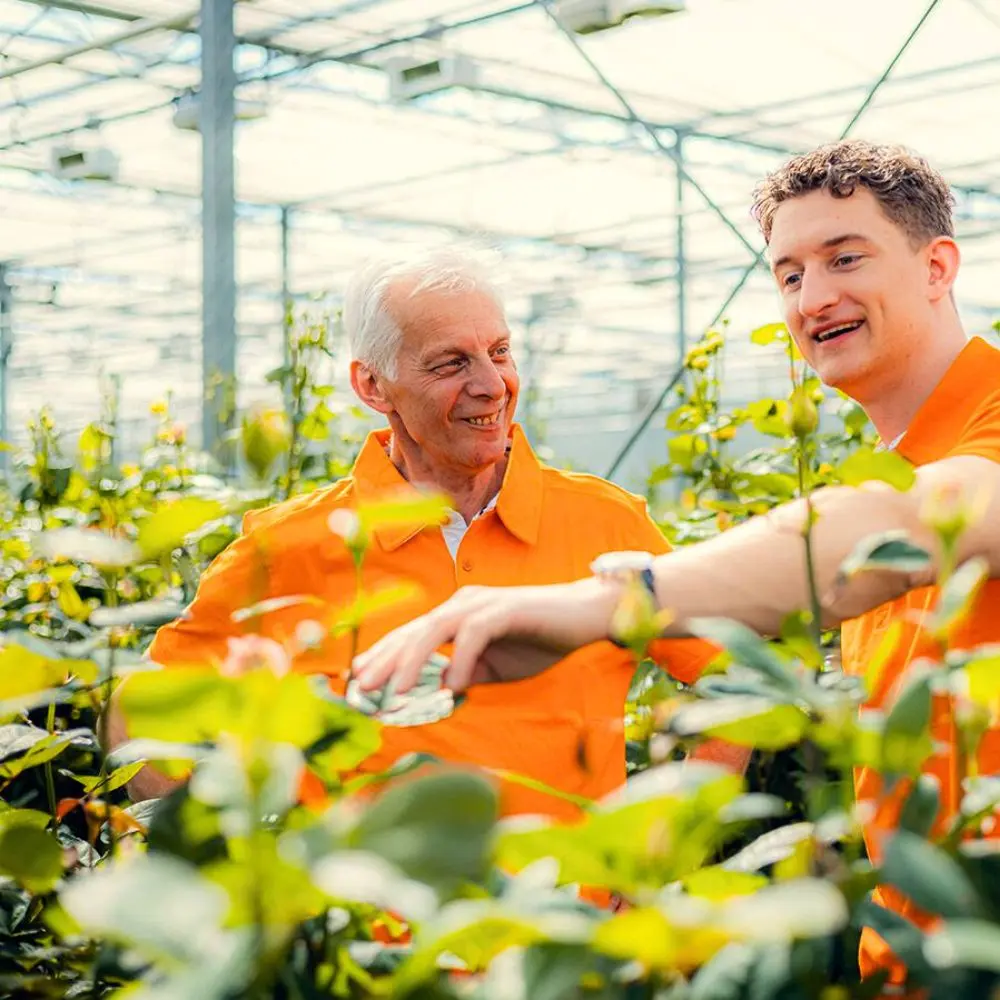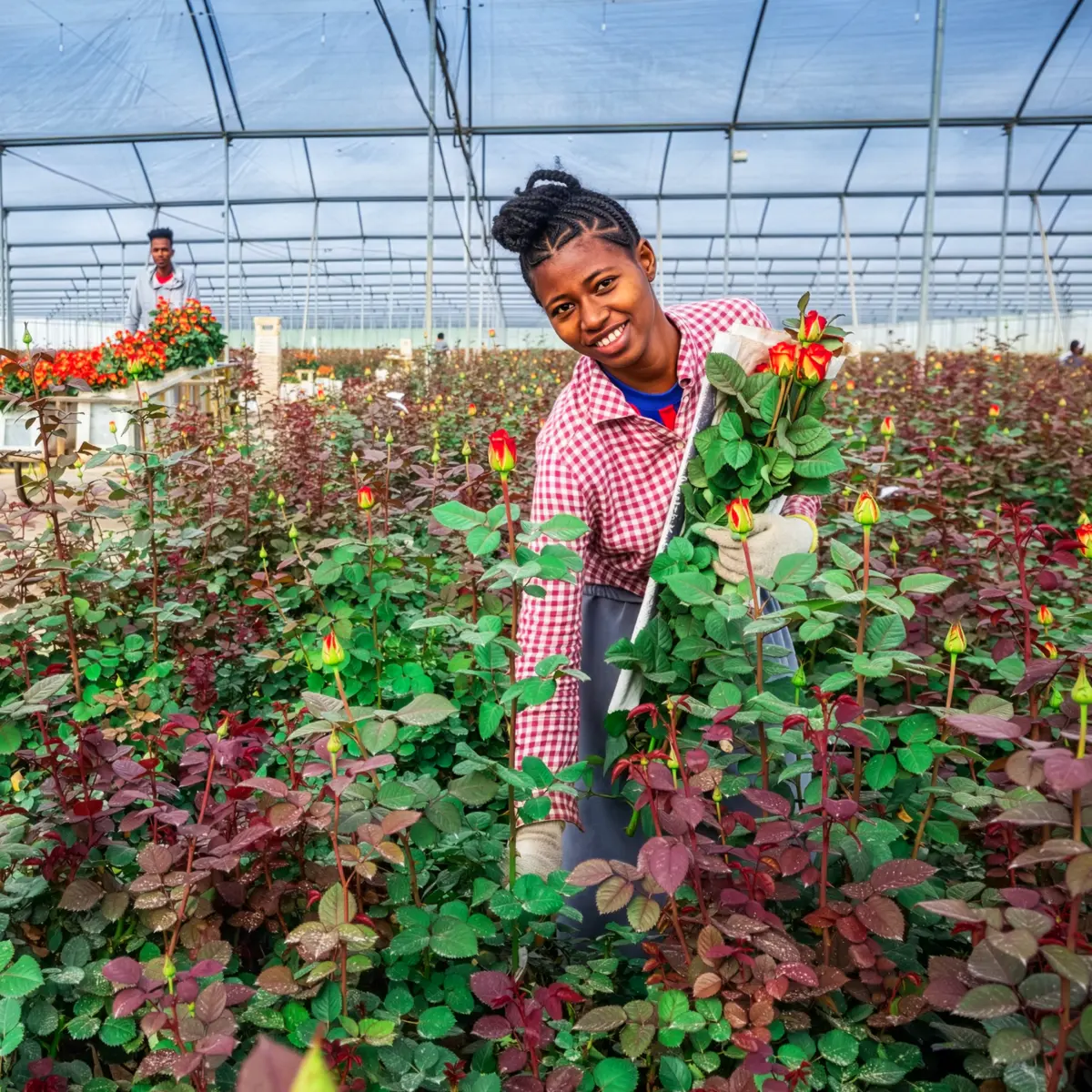This week on 10 Questions, we dive into the story of Gert-Jan Klaver, the passionate co-owner of Klaver Flowers, a family business with over five decades of expertise in growing lilies and other summer flowers. Raised among flowers and rooted deeply in floriculture, Gert-Jan brings a blend of hands-on experience, operational insight, and a global perspective, spanning from the greenhouses in the Netherlands to their flourishing farm in Ethiopia.
With a strong belief in teamwork, sustainability, and the power of long-term relationships, Gert-Jan opens up about the joys and challenges of growing live crops, the importance of innovation, and how he balances the pressures of leadership with moments of family and sport. Read on to learn about his story!
Question 1
For those who don’t know you, who are you, and what do you do?
"My name is Gert-Jan Klaver, and together with my sister Lydia, I run Klaver Flowers – a family business that has been growing Lilies for over fifty years. I grew up among the flowers and still get energy from working close to the crop every day. While I mainly focus on operations and production, no day is ever the same. From managing our greenhouses in the Netherlands to staying in close contact with our team in Ethiopia, I’m involved in every step. We grow Lilium, Gypsophila, Limonium, Craspedia, and recently added Moluccella to our assortment.
Each crop brings its challenges, which is why we invest heavily in research and development. We refine techniques and select resilient, distinctive varieties that truly fit our vision. This allows us to offer high-quality, summer flowers like Delphinium, Statice, Veronica, Eryngium, Hypericum, Helianthus, and Carthamus."

Question 2
What is so special about your job?
"What I find most special is that you’re working with something alive. Flowers react to everything — light, temperature, water — so you’re constantly adjusting and learning. You never fully control nature, but you can guide it. I like that balance. And then there's the human side: our teams and our customers. It’s all about trust and cooperation. We aim to be reliable. That makes it meaningful, especially when people come back to us year after year because they know they can count on us."
Question 3
Are there any specific challenges or obstacles you’ve faced at work, and how did you overcome them?
"Running a business across continents isn’t always easy. One of our biggest challenges was setting up our farm in Ethiopia. You're dealing with a different culture, climate, and infrastructure. But we believed in the potential and invested in people first. Over the years, we’ve built a strong local team that understands the crops, and we’ve learned just as much from them as they have from us. That mutual respect is key. Looking back, I’m proud of how we made it work. It wasn’t quick or perfect, but it was real."
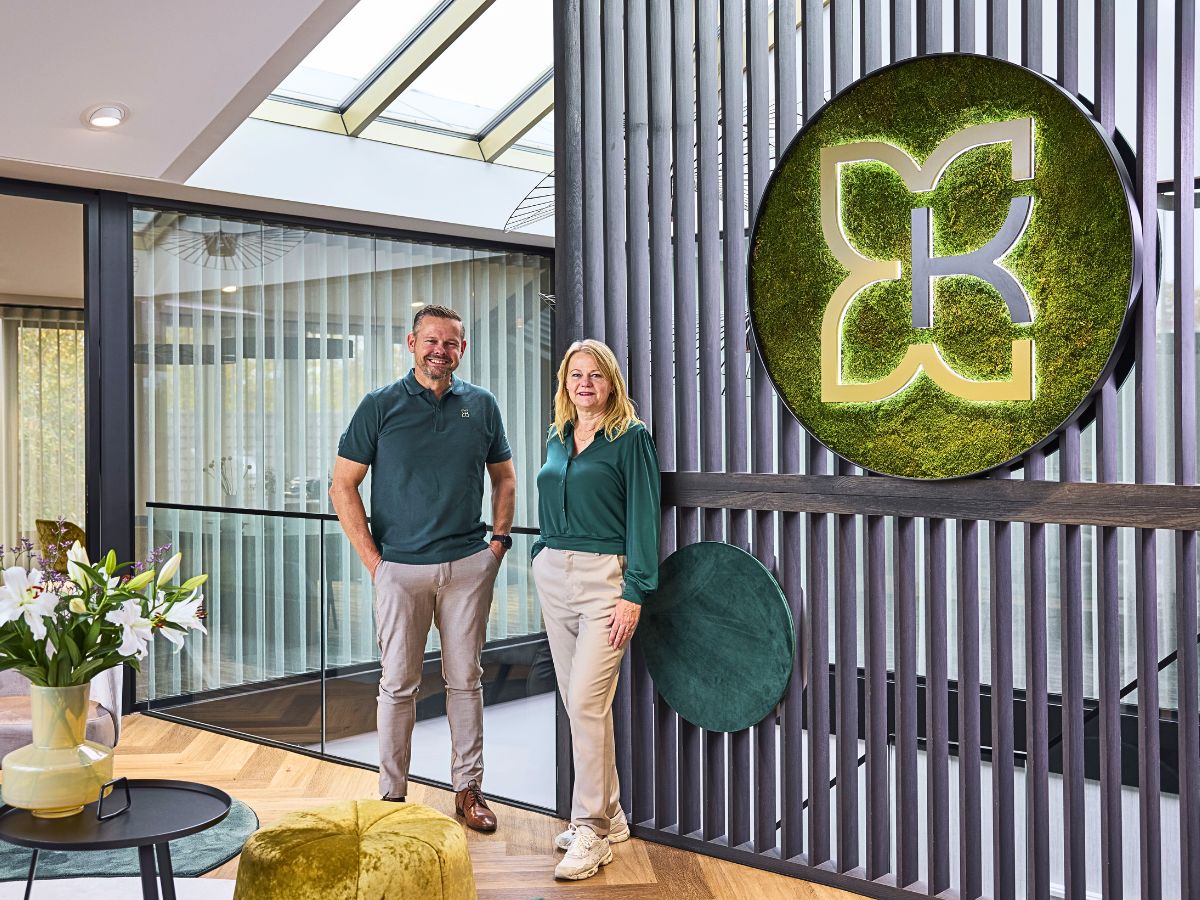
Question 4
What are the threats in the industry, and if so, do you have any solutions for them?
"There’s growing pressure on costs, logistics, and sustainability. At the same time, quality expectations are higher than ever. I think the real risk is trying to do everything fast and cheap — it often leads to short-term thinking. Our approach is to focus on consistency and build long-term relationships. I believe in cooperation and transparency — not just between growers and buyers, but across the entire chain. That’s how we can create real value."
Question 5
How has technology, such as e-commerce platforms or digital marketing, affected your industry? What strategies have you employed to stay competitive?
"Technology has changed a lot — from how people buy flowers to how they expect service. Our Virtual Marketplace is one example: traders can order before 7:00 AM and receive fresh stock the same morning. It’s not high-tech for the sake of it, but a practical tool that fits the fast rhythm of the flower trade. We also use digital channels to stay connected with our clients and show them what’s in production. It's all about being visible, accessible, and helpful. In the end, technology should support the grower-client relationship, not replace it."
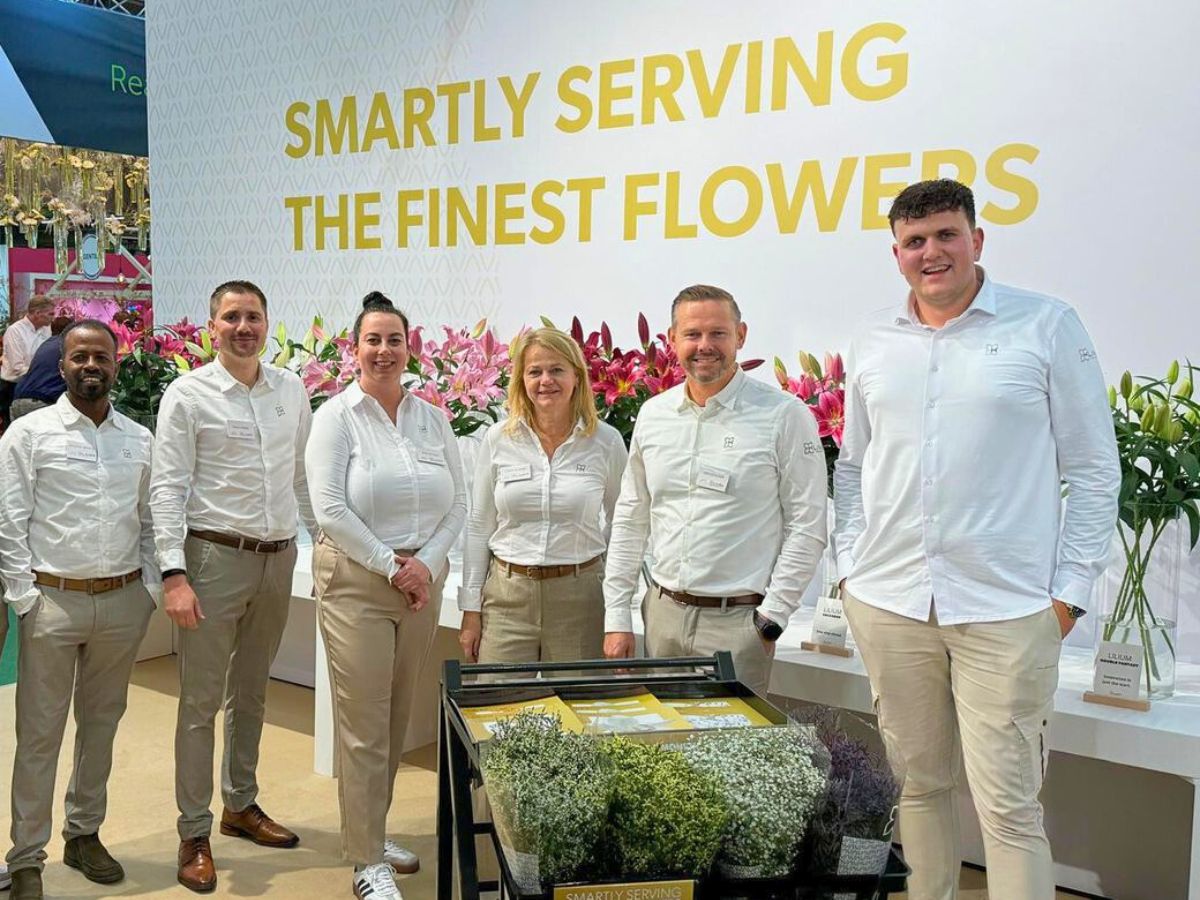
Question 6
Who (in or outside the floral industry) is an inspiring example to you? And Why?
"My father has always been an example to me when I was younger. I admire the winner mentality in sports — focus on your goal, never give up, keep working with your team, and you can become the best. Leading a flower company requires that same mindset. It comes with challenges, and you need to keep getting smarter to stay ahead with a quality product. There’s no time to sit back — the learning curve never stops. You need a team that works together towards the same goal to become successful."
Question 7
How do you handle stress or difficult moments in your life?
"It’s important to maintain a good mindset and have discipline. A little stress helps you stay sharp, but too much makes you inefficient. Challenges and difficulties will always come your way — getting stressed doesn’t help. It’s better to focus on solving the problem. Most issues can be fixed more easily than you think. Just keep on breathing and try to stay positive.
I’m grateful for my wife and family who support me, and I’m lucky to have people around me I truly trust — both at work and outside of it. We talk things through and keep each other sharp. And sometimes, I turn to sport: getting on my bike with friends, ice speed skating, or going to the gym. That clears my head. You don’t need all the answers right away — just keep moving."

Question 8
What has been the best (floral or non-floral) news for you lately, or of the last year?
"Knowledge about sustainable growing is improving steadily. There’s still a lot to learn, but slowly we’re seeing good progress — replacing chemicals with biological control. On our farm, we’ve achieved great results this year, and I’m very happy about that. Fully replacing chemical control will take time and a long learning curve, but it’s possible to reduce its use to a minimum in the long run. Some level of chemical use will always be necessary, just like people sometimes need medicine."
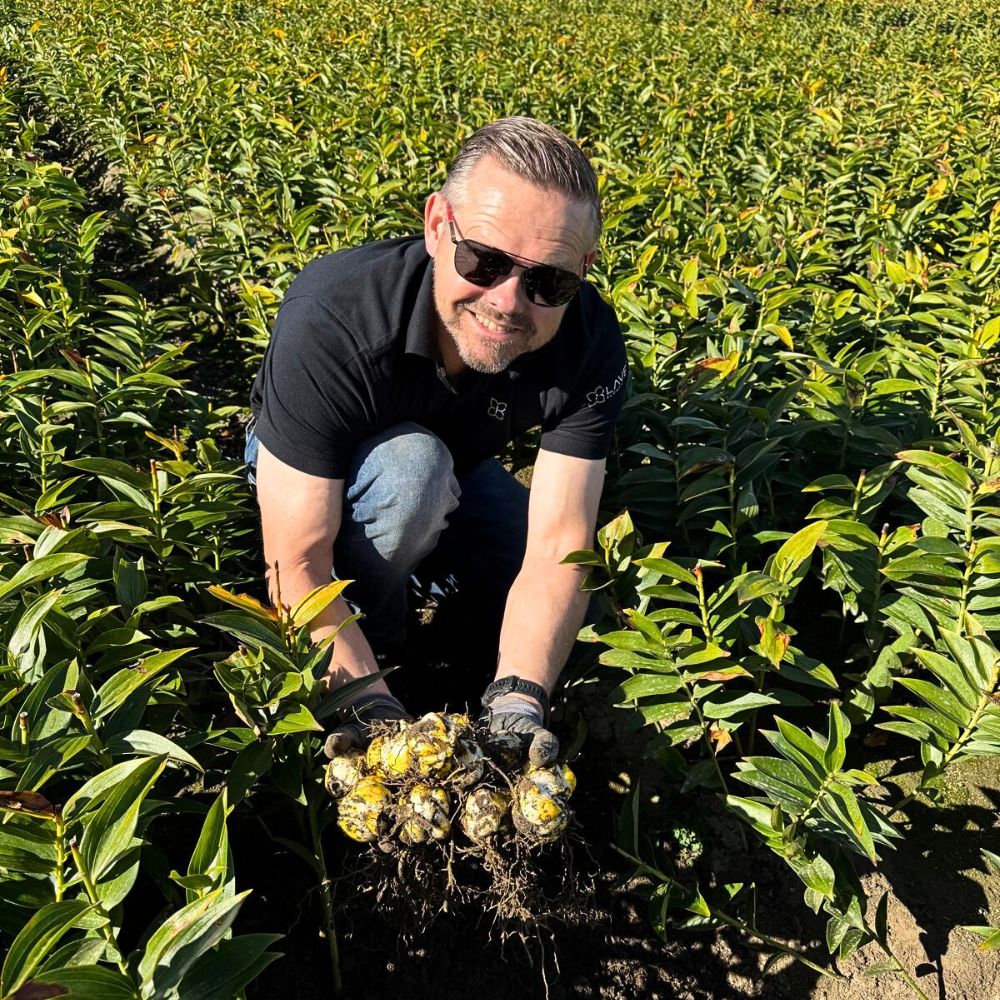
Question 9
Which is your favorite flower/plant, and why is it good for you?
"That’s a tough one — we grow so many beautiful varieties. But if I had to pick, I’d say that lilies are still my favorite. When you look at the beauty of it, the different stages of growing from bulbs until the flowers open. Single and double lilies both have their beauty."

Question 10
What are you doing this weekend?
"Watching my children’s football games, riding my bike with friends, spending time with family — that’s how I relax and enjoy myself. The weekend is short, but it gives me energy for the week ahead. I don’t like busy weekends."
All pictures courtesy of Gert-Jan Klaver.

